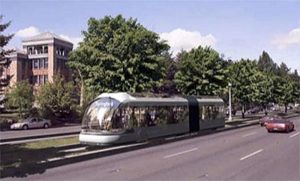Peter’s Take is a weekly opinion column published on Tuesdays. The views and opinions expressed in this column are those of the author and do not necessarily reflect the views of ARLnow.com.
 In last week’s column, I explained why Arlington needs to develop a core services approach to deal with its budget. Several commenters offered helpful suggestions as to how Arlington ought to define a core services approach.
In last week’s column, I explained why Arlington needs to develop a core services approach to deal with its budget. Several commenters offered helpful suggestions as to how Arlington ought to define a core services approach.
For example:
- “Another way to look at the role of government revolves around the phrase ‘Basic Human Needs.’ Things like the Artisphere, other arts and cultural projects, fancy swimming pools, and dog parks need to take a back seat to education, public safety, assistance to the needy.” -Willy
- “Focus on the core and spend in other [areas] only as funds permit. But equally as important, spend wisely on everything.” -John Fontain
- “It’s stuff that you would think is almost too self-evident to need mentioning. But when you see the cuts proposed, you have to wonder. Sure, there is some room for debate about what is core, and the published example from California is just one example.” -Flux
Of course, there are refinements, adjustments and other details that Arlington needs to address in order to adopt a core services approach to its budget.
For example:
- Core services such as police, fire, and schools should not be immune from cuts. As “John Fontain” says, Arlington should “spend wisely on everything”. But, programs and services in core areas such as these should be given greater protection from cuts than programs in more peripheral areas.
- Contrary to the views of another commenter last week, I certainly do not believe that Arlington should stop funding parks or libraries. These are critical functions of our local government and justify very substantial continuing investment.
Where Arlington has missed the mark is by spending, or proposing to spend, extravagant amounts of money in areas relating to, for example, public recreation. Don’t get me wrong. I believe it is important for Arlington to provide facilities like swimming pools and dog parks. But, I also believe it is extravagant to construct an $82 million Aquatics Center or a $1.7 million dog park.
In the end, Arlington needs to adopt a core services approach to budgeting because such an approach will provide a publicly articulated and understood set of values by which budget proposals can be measured.
A core services approach to budgeting should only be adopted by the County Board after an appropriate process of community engagement.
Peter Rousselot is a member of the Central Committee of the Democratic Party of Virginia and former chair of the Arlington County Democratic Committee.



